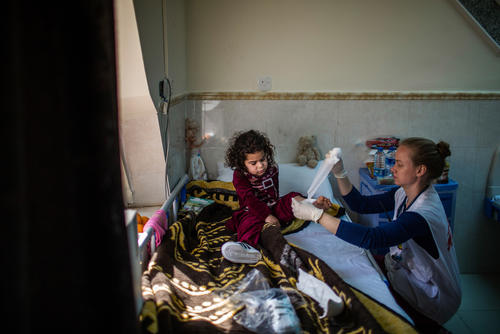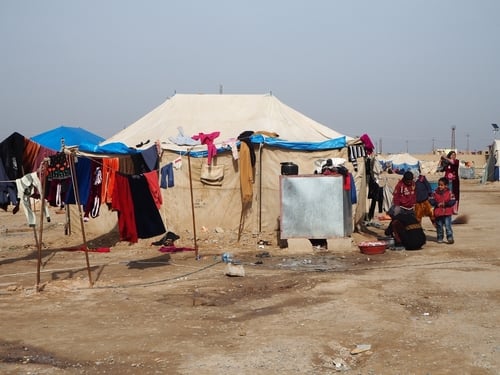The newly renovated intensive care unit (ICU) in Sulaymaniyah emergency hospital was officially opened on 19 November. It has 10 beds, including two in an isolation room with strengthened infection control measures for the most at-risk patients. "This hospital is very important to the people of Sulaymaniyah Governorate and neighbouring regions, as it is the main referral facility for the severely ill and injured, says Jonathan Henry, MSF's head of mission based in Sulaymaniyah. The renovated ICU is in use since Thursday last week and was officially inaugurated on 19 November.
Sulaymaniyah emergency hospital is the only trauma facility in Sulaymaniyah Governorate treating all people with acute medical and surgical illness. Over the last two years, there has been a significant rise in the hospital's catchment population (currently over 2.5 million people) due to the influx of internally displaced people from neighbouring conflict zones. MSF has been working in Sulaymaniyah emergency hospital since January 2016, with the aim of reducing patient mortality rates by improving quality of care in both the ICU and the emergency department through improved patient care and structural renovations.
"We treat people injured in road traffic and domestic accidents, as well as war-wounded. The Sulaymaniyah emergency hospital also treats patients referred from other areas including Kirkuk, Ninewa and Dyiala governorates. MSF aims to provide quality healthcare for all patients," says Henry.
The MSF medical team (one ICU doctor and nurse, and one emergency room doctor and nurse) is working alongside staff from the Sulaymaniyah Directorate of Health to deliver improved quality healthcare to patients, through the provision of clinical expertise that includes theoretical and hands-on trainings. This includes an ICU and emergency room induction programme for all nursing and medical staff; implementation of safe trauma and intensive care with evidence-based standards, protocols and guidelines; and implementation of infection control policies. When needed and in case of a stock-out in the hospital, MSF also supplies drugs and medical equipment.
Between January and September 2016, 250 patients were admitted to the ICU and over 25,000 patients were admitted to the emergency room.
MSF has worked in Iraq intermittently since 1991 and currently employs over 700 Iraqi and international staff, working in projects in 12 governorates. In order to ensure its neutrality, impartiality and independence, MSF does not accept funding from any government, or international agency for its programmes in Iraq, and relies solely on private donations from the general public around the world to carry out its work.






